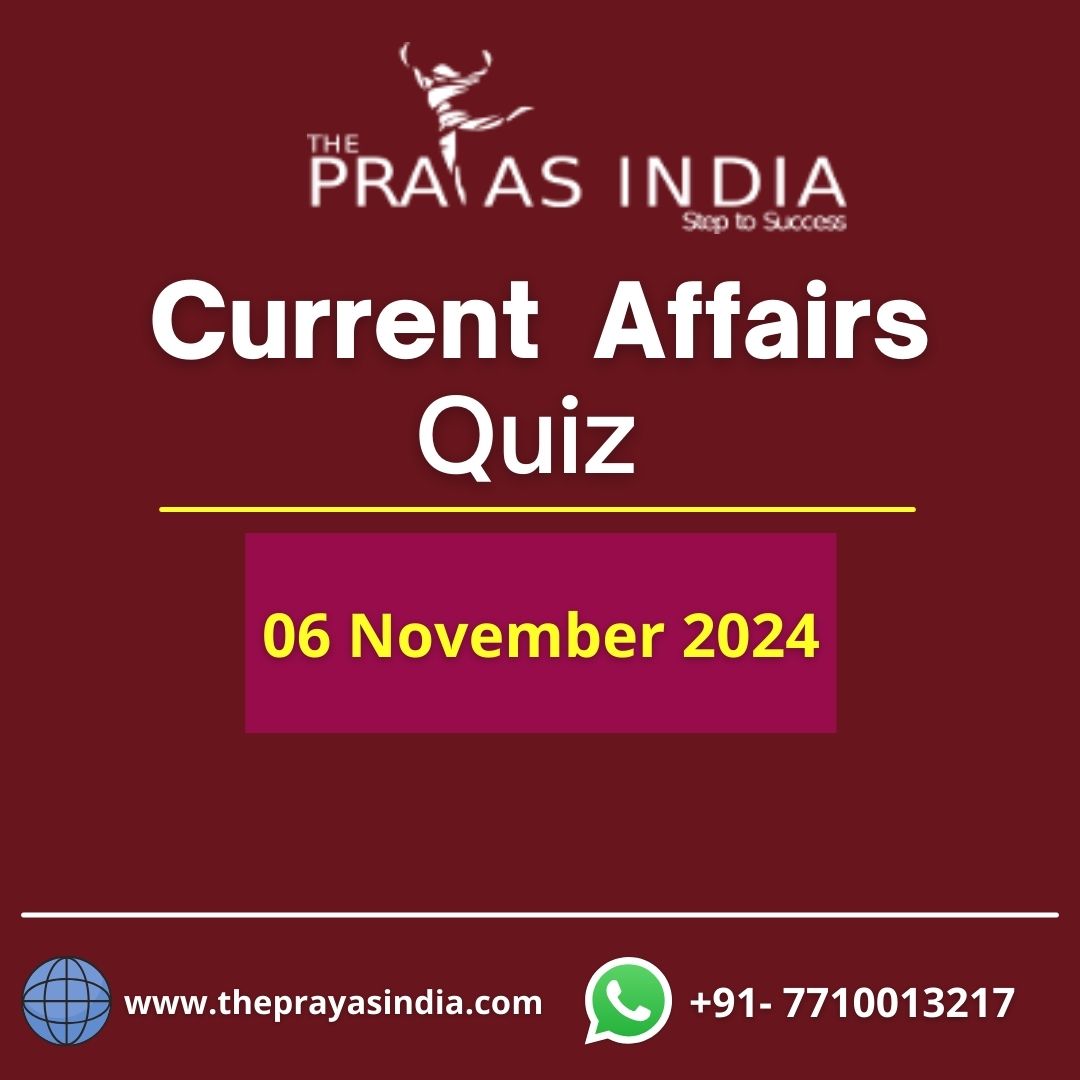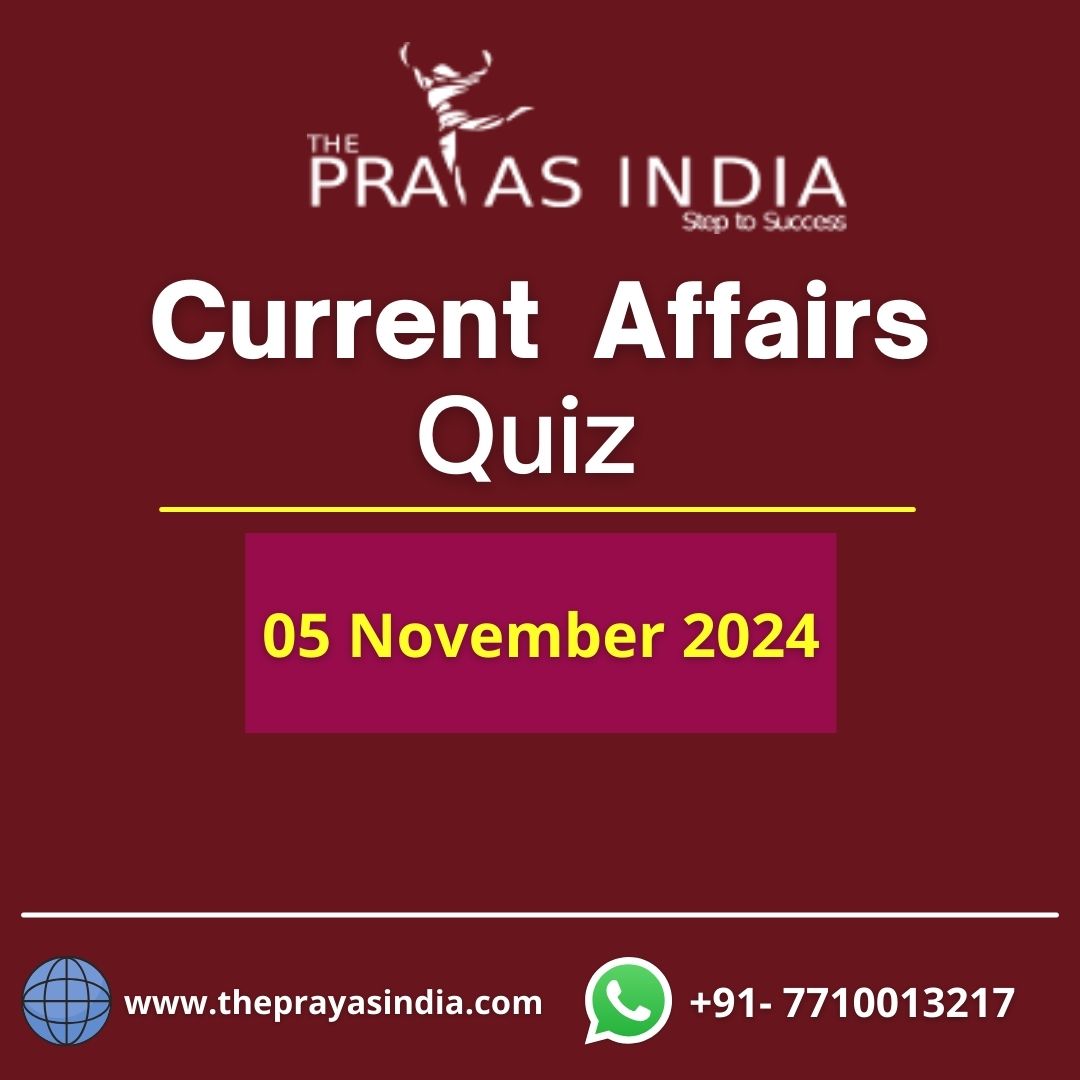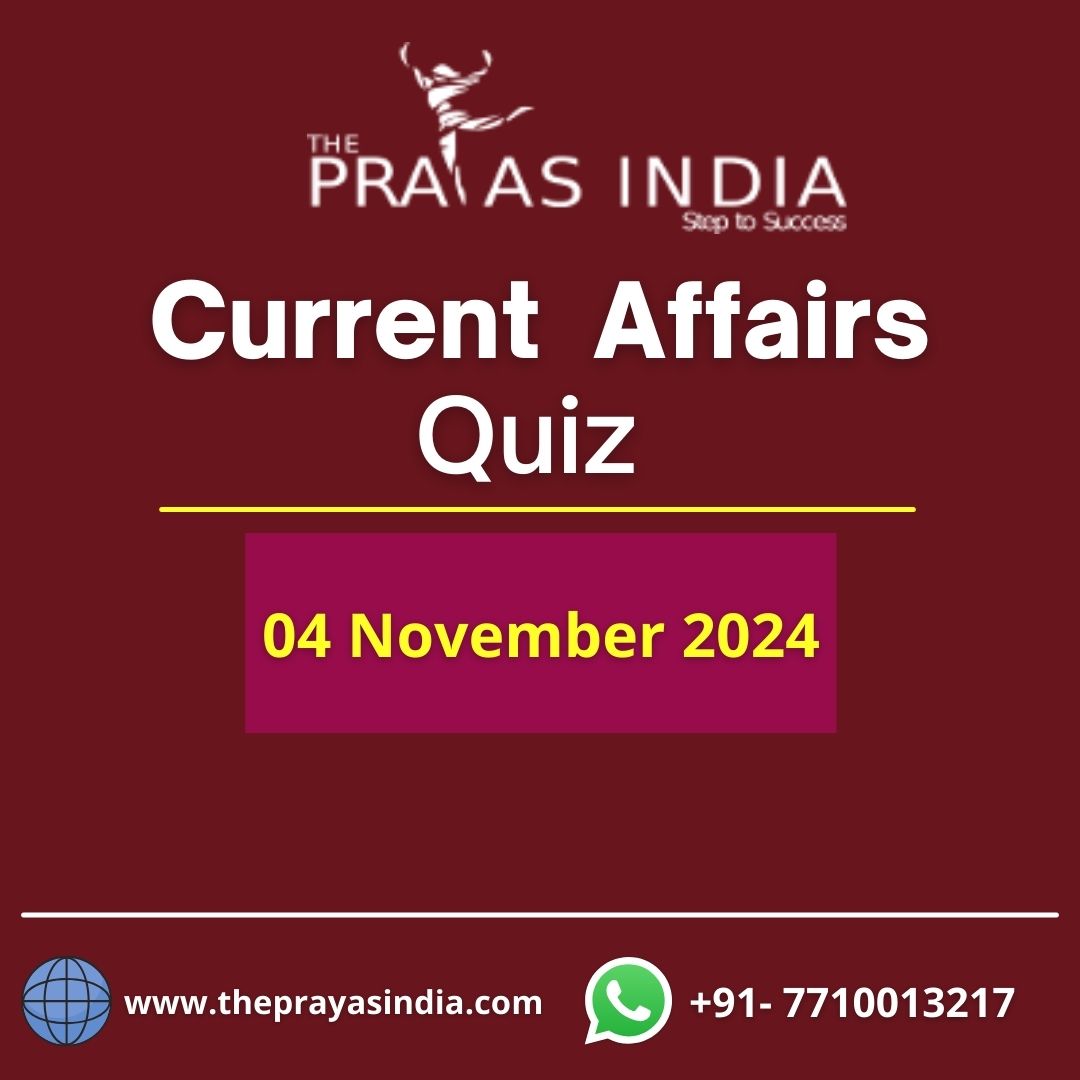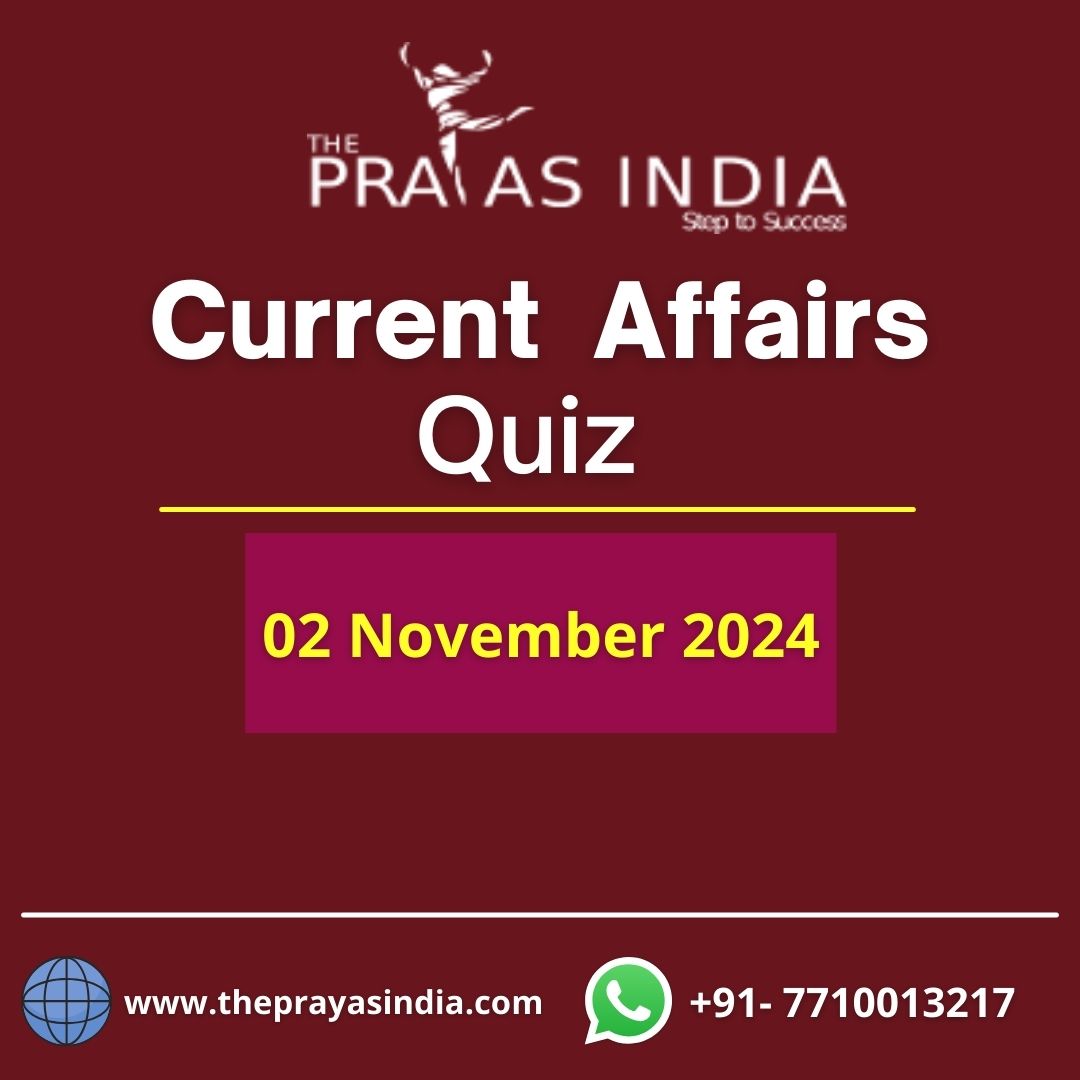Q1. Consider the following statements with respect to ‘Proportional Representation system of election’. Choose the correct ones:
- The entire country may be a single constituency.
- Every constituency elects one representative only.
- Voter votes for the party and not the candidates.
Select the correct answer from the code below:
- 1 and 2 only
- 2 and 4 only
- 1 and 3 only
- All of the above
Explanation:
- In ‘Proportional Representation system of election’, the entire country may be a single constituency. Every constituency elects more than one representatives. Voter votes for the party and not the candidates.
Q2. Which among the following statement are correct about Delimitation Commission:
- It is appointed for the purpose of drawing up the boundaries of constituencies all over the country.
- It is an independent body appointed by the Election Commission of India.
Select the correct answer using the code given below:
- 1 only
- 2 only
- Both 1 and 2
- Neither 1 nor 2
Explanation:
- Who decides which constituency is to be reserved? On what basis is this decision taken? This decision is taken by an independent body called the Delimitation Commission. The Delimitation Commission is appointed by the President of India and works in collaboration with the Election Commission of India. It is appointed for the purpose of drawing up the boundaries of constituencies all over the country. A quota of constituencies to be reserved in each State is fixed depending on the proportion of SC or ST in that State.
Q3. Which among the following statement are correct:
- Election commission has always been a multi-member body
- The timing and schedule for Loksabha election is decided by the President of India
- Election commission can postpone or cancel the election if free and fair election is not possible
- The CEC and the two Election Commissioners have equal powers to take all decisions relating to elections as a collective body
Select the correct answer from the code below:
- 1 and 2 only
- 3 and 4 only
- 2, 3 and 4 only
- 1, 2, 3 and 4
Explanation:
- The Election Commission of India can either be a single member or a multi-member body. Till 1989, the Election Commission was single member. Just before the 1989 general elections, two Election Commissioners were appointed, making the body multi-member. Soon after the elections, the Commission reverted to its single member status. In 1993, two Election Commissioners were once again appointed and the Commission became multi-member and has remained multi-member since then.
- Election Commission also determines the timing of elections and prepares the election schedule. During this entire process, the Election Commission has the power to take decisions to ensure a free and fair poll. It can postpone or cancel the election in the entire country or a specific State or constituency on the grounds that the atmosphere is vitiated and therefore, a free and fair election may not be possible.
- The Chief Election Commissioner (CEC) presides over the Election Commission, but does not have more powers than the other Election Commissioners. The CEC and the two Election Commissioners have equal powers to take all decisions relating to elections as a collective body. They are appointed by the President of India on the advice of the Council of Ministers.
Q4. “In Indian context, we adopted the system of reserved constituencies”. Consider the following cases and choose the correct ones:
- The Constitution provides for reservation of seats in the Lok Sabha and State Legislative Assemblies for the Scheduled Castes and Scheduled Tribes.
- The number of seats reserved for both of these groups is in proportion to their share in the population of India.
- This decision to reserve a constituency is taken by an independent body called the Delimitation Commission.
Select the correct answer using the codes below
- 1 and 3 only
- 1 and 2 only
- 2 and 3 only
- All of the above
Explanation:
- The Constitution provides for reservation of seats in the Lok Sabha and State Legislative Assemblies for the Scheduled Castes and Scheduled Tribes.
- The number of seats reserved for both of these groups is in proportion to their share in the population of India.
- This decision to reserve a constituency is taken by an independent body called the Delimitation Commission.
Q5. Consider the following statements with respect to the Election Commission of India and choose the correct ones:
- The ECI Conducts Presidential, Vice Presidential, Lok Sabha, Rajya Sabha, State Legislative Assembly, and State Legislative Council elections.
- It also is responsible for administrative functions such as announcement preparation of electoral rolls.
- It prescribes Model Code of Conduct to prevent electoral malpractices.
Select the correct answer using the code below
- 1 and 2 only
- 2 and 3 only
- 1 and 3 only
- All of the above
Explanation:
- Election Commission of India:
- Articles 324 – 329 mention the Election Commission of India and contain all the relevant provisions.
- The ECI Conducts Presidential, Vice Presidential, Lok Sabha, Rajya Sabha, State Legislative Assembly, and State Legislative Council elections.
- It also evaluates and verifies election applications.
- It also is responsible for administrative functions such as announcement preparation of electoral rolls.
- It prescribes Model Code of Conduct to prevent electoral malpractices.
- Any dispute relating to the conduct and management of elections have to placed before the Election Commission of India. However, any dispute with respect of LS, RS, and State Elections have to be placed before respective High Courts.
Q6. Consider the following with respect to Election Commission of India and choose the correct ones:
- The Constitution provides safeguards for the Chief Election Commissioner (CEC) and two other Election Commissioners from arbitrary removal.
- They can be removed from office only by the order of the President, just like a judge of the Supreme Court.
Select the correct answer using the code below
- 1 only
- 2 only
- Both 1 and 2
- Neither 1 nor 2
Explanation:
- Proviso to Article 324 (5) of the Constitution safeguards the Chief Election Commissioner (CEC) from arbitrary removal.
- The CEC can be removed from office only by the order of the President, just like a judge of the Supreme Court. However, the same constitutional provision is silent about the procedure for removal of the two Election Commissioners. It only provides that they cannot be removed from office except on the recommendation of the CEC.
Q7. Which of the following statement(s) is/are correct about Electoral Bonds?
- These are issued by Scheduled Commercial banks upon authorisation to intending donors, but only against cheque and digital payments.
- The reform is expected to bring about greater transparency in political funding to the voter.
- The bonds are seen to impact the authority of RBI.
Choose the correct answer using the codes below:
- 1 only
- 2 only
- 2 and 3 only
- 1 and 3 only
Explanation:
- Statement 1 is correct: Electoral Bond is a financial instrument for making donations to political parties. These are issued by Scheduled Commercial banks upon authorisation from the Central Government to intending donors, but only against cheque and digital payments (it cannot be purchased by paying cash).
- Statement 2 is wrong: While the Bonds seek to usher in transparency in political funding, they maintain anonymity of the donor from the political parties and the public.
- Statement 3 is correct: Section 31 of the RBI Act gives power, as of today, to issue bearer bonds only to RBI and the government. To let commercial banks issue these electoral bonds (which are bearer bonds), the government will have to amend the RBI Act. So, the issue of such bonds is leading to some discomfort among RBI officials who feel it will erode some of the central bank’s authority.
Q8. Consider the following statements regarding State Election Commission:
- It is concerned with the elections to panchayats and muncipalities in the states only.
- The process of removal of a State Election Commissioner is similar to the removal of a Judge of a State High Court
Select the correct answer using the code below
- 1 only
- 2 only
- Both 1 and 2
- Neither 1 nor 2
Explanation:
- There is a separate state election commission to deal with elections to the panchayats and municipalities in the state.
- It consists of a state election commissioner to be appointed by the governor. His conditions of service and tenure of office shall also be determined by the governor. He shall not be removed from the office except in the manner and on the grounds prescribed for the removal of a judge of the state high court. His conditions of service shall not be varied to his disadvantage after his appointment.
Q9. Which of the following statements is/are correct?
- Opinion of Chief Election Commissioner would prevail incase of difference of opinion amongst the chief Election Commissioner and two other election commissioners.
- The conditions of service and tenure of the office of election commissioners are determined by the President.
Select the correct answer using the code below
- 1 only
- 2 only
- Both 1 and 2
- Neither 1 nor 2
Explanation:
- The conditions of service and tenure of office of the election commissioners and the regional commissioners shall be determined by the president.The Election Commission has been functioning as a multi-member body consisting of three election commissioners.The chief election commissioner and the two other election commissioners have equal powers and receive equal salary, allowances and other perquisites, which are similar to those of a judge of the Supreme Court. In case of difference of opinion amongst the Chief election commissioner and/or two other election commissioners, the matter is decided by the Commission by majority.
Q10. Consider the following statements with reference to recently introduced Electoral Bonds
- Only a citizen of India or a company incorporated in India can purchase electoral bonds
- All political parties are eligible to receive donations through electoral bonds
Which of the statement(s) given above is/are correct?
- 1 only
- 2 only
- Both 1 and 2
- Neither 1 nor 2




